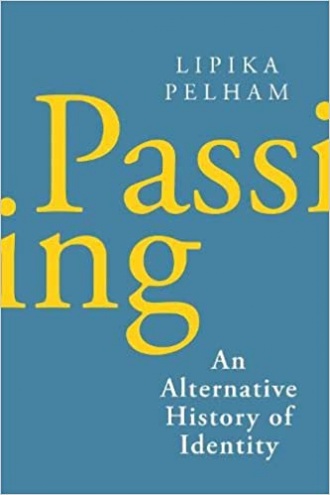This is the last article you can read this month
You can read more article this month
You can read more articles this month
Sorry your limit is up for this month
Reset on:
Please help support the Morning Star by subscribing here
“PASSING,” according to Lipika Pelham, is “the act of living or imitating a life belonging to an identity other than the one you have been assigned by society.”

But as the book Passing’s subtitle suggests, this is not just another survey of the contemporary celebratory craze for a recognition of individuality in our mass-conscious world. The author recognises that the quest for identity, an essential facet of humanity, has “no absolute markers to measure our being or belonging.”
A documentary film-maker and much-travelled ex-BBC foreign correspondent, Pelham is a Bangladeshi Hindu who married an English Jewish NGO worker who now lives between London and Jerusalem and has become accustomed to the stresses of reinventing herself to fit in with social preconceptions and expectations.
Her book uses many accounts from life and fiction of the problems and difficulties experienced by those finding it necessary, or choosing to, escape or subvert their identities.
The term passing was born with the slave trade, when those seeking to escape its brutalities were forced, where possible, to take on disguises which alienated themselves from the life they had endured.
The formal ending of the slave trade did not free the African-Americans from the “castle” of their skin colour, as those discovered who joined the great mid-20th century exodus northwards from the Jim Crow-segregated South.
As well as extended sections exploring white protectionism, not only in the US but also in Brazil and India, Pelham examines the South African apartheid experience which, interestingly, she explains is based essentially on complexion rather than race.
To protect their own fragile sense of identity and provide a buffer between white and black, the Afrikaner government invented the more ambiguous category “coloured” for those non-white immigrants not members of the indigenous peoples.
She draws extensively on her own experiences of racism in Britain and singles out the state’s notorious treatment of the Windrush generation.
Moving on to the painful social ambiguities involved in sexual identity, Pelham comments that “the fiction of race,” in attempting to prioritise “inherent biology” and driven by an obsession with determining other people’s identity has resulted in tragic consequences for society, with some suffering the pain of having to “conceal an entire lifetime’s experience.”
The process of passing can be the lot of whole peoples, often in response to religious persecution, as much as individuals, all suffering “a chasm or rupture in selfhood.” Particularly interesting are the author’s own family experiences in passing in religious terms. Her father recreated himself to survive the Hindu caste system but, in the process, “carried the solitude of rootlessness.”
Pelham captures the tragic irony of a Jerusalem night club where, taken by Palestinian-Muslim girl Fida — who with care can pass like others as Israeli — she finds herself in “a live melting pot of people who, in daylight hours, are caught in a visceral conflict... Passers effortlessly impersonating the community they are fighting against.”
This remarkable book merges perceptive understanding of sociopolitical identity problems facing many who are disempowered and marginalised owing to skin-colour, sexuality, gender, caste, class or religion, with an almost guilty self-confessional note. She admits that her personal confusions have led to “some kind of internalised inferiority or aspiration to whiteness.”
Published by Hurst & Company, £25.








